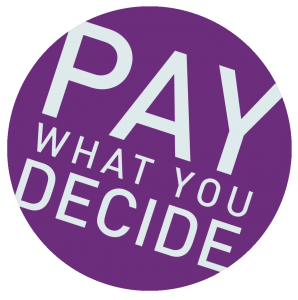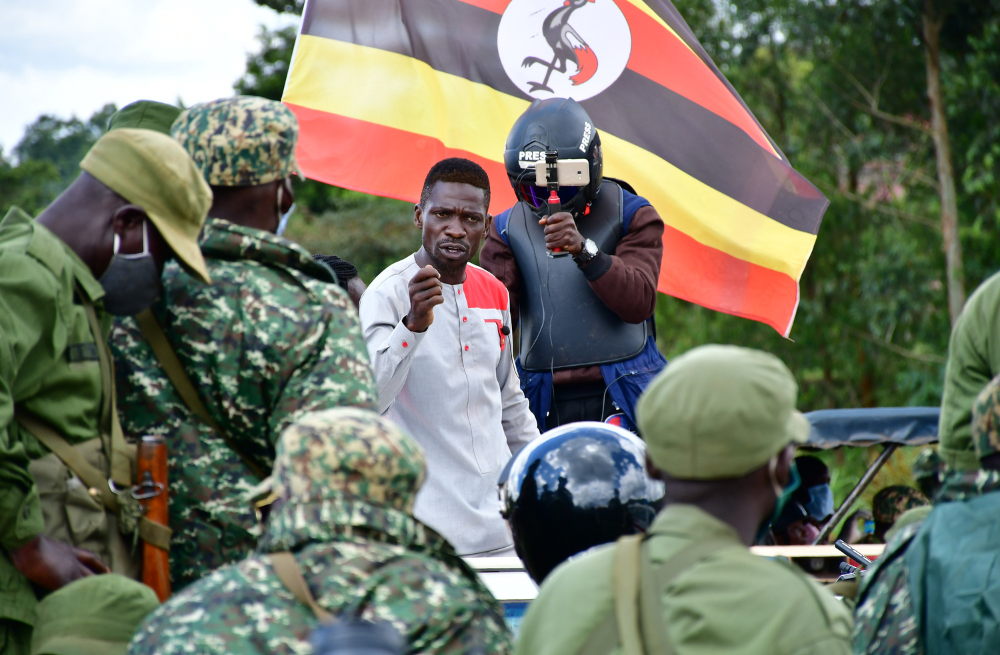Running time: 114 minutes
Dynamic Pricing
ARC’s policy is to set ticket prices based on demand, like budget airlines, which means we set a price when the event goes on sale and then sometimes put the price up or down depending on how the show is selling. Usually, the price will increase as we get closer to the event, so it is advantageous to book in advance, although sometimes we will put special offers on and reduce the price. Our website will always show the current ticket price.

ARC’s theatre and dance performances are priced on a Pay What You Decide basis, which means you don’t have to pay until after you have seen a show!
We want to encourage more people to come and see shows at ARC, more often. Pay What You Decide not only allows you to pay what you can afford, rather than a fixed ticket price, but also removes the financial risk of buying a ticket for a show in advance without knowing whether you are going to enjoy it or not.
Tickets are available to book in advance as usual, but there is no obligation for you to pay until after you have seen the show. You can then decide on a price which you think is suitable based on your experience, which means if you haven’t enjoyed it at all, you don’t have to pay anything.
All money collected will help ARC pay the artists who have performed, and we therefore hope you will give generously.
Please ensure you have arrived and collected your tickets 15 minutes before the show starts in order to secure your seats. At the end of the show, you can decide what to pay, either by cash on the door or by card at the Box Office.
Seating: Allocated - See Seating Plan for More Details
The screening at 2pm on Thursday 5 October is a relaxed screening for people living with dementia.
Documentary from National Geographic which premiered to a 10-minute standing ovation at the 2022 Venice Film Festival. The film follows the musician
Born in the slums of Kampala, Bobi Wine, Ugandan opposition leader, former member of parliament, activist and national superstar musician, risks his life and the lives of his wife, Barbie, and their children to fight the ruthless regime led by Yoweri Museveni. Museveni has been in power since 1986 and changed Uganda’s constitution to enable him to run for yet another five-year term. Running in the country’s 2021 presidential elections, Bobi Wine uses his music to denounce the dictatorial regime and support his life mission to defend the oppressed and the voiceless people of Uganda. In this fight, he must also take on the country’s police and military, which are not afraid to use violence and torture in a vain attempt to intimidate and silence him and his supporters.
Robert Kyagulanyi Ssentamu, famously known as Bobi Wine, is a musician turned politician who is the current leader of the National Unity Platform (NUP) and the People Power Movement. Bobi was born in Mpigi District in Uganda on Feb. 12, 1982. He grew up in the Kamwokya slums in the northeast part of Kampala. His mother was a nurse, and his father was a veterinarian and farmer.
Bobi is a singer, musician, actor and activist. He has campaigned for hospital sanitization, malaria prevention, refugees’ rights and children’s education. His songs are known as peaceful protest and edutainment (a mix between education and entertainment), focusing on the struggles of Uganda’s underprivileged and low-income earners and calling upon young people to join politics and change their country’s destiny. He is married to Barbara Itungo Kyagulanyi, known as Barbie, with whom he has four children.
His characteristic enthusiasm for democratic discourse and the popularity he had earned from his prior artistic and philanthropic endeavors successfully endured his transition to politics. Bobi Wine continues to lead the NUP, the largest political opposition party in Uganda and has become the main opposition leader to President Museveni’s rule.
“Electric insight into Ugandan Power Struggle” – The Observer
Directed by Moses Bwayo, Christopher Sharp
Produced by Christopher Sharp, John Battsek
Co-Produced by Megan Hollinghurst
Executive Producers Humble Lukanga, Sol Guy, Alastair Siddons, Carolyn Bernstein, Kerstin Emhoff
Directors of Photography Sam Benstead, Moses Bwayo, Michele Sibiloni
Edited by Paul Carlin
-
Seating accessibility information
Seat size
Seats in the Cinema are 45cm (172/3“) wide and 46cm (18“) deep, are 40cm (152/3“) from the floor, and have 12cm (42/3“) between seats.
Armrests
Seats in the Cinema have armrests that do not fold away, and cannot be completely removed.
Legroom
Seats in the cinema have 30cm (112/3”) of legroom in front of seats, with additional legroom on row A and seats B1-B4 and B11-B14.
Further information
If you have any questions about accessibility our Box Office team are always happy to help and can be contacted on 01642 525199 or by emailing [email protected] - you can also tell us about your access requirements when prompted to do so during the online booking process.
-
BBFC rating information (may contain spoilers)
Violence
Ugandan security forces are shown firing guns at unarmed civilians, striking people with fists, sticks or rifles, and using tear gas and pepper spray. There are also infrequent moderate references to off-screen torture.
Threat and horror
There is moderate threat and intensity in footage of frightened civilians being shot at or roughly arrested by police.
Language
There is infrequent use of strong language (‘bumbaclot’). Milder terms include ‘shit’, ‘Jesus Christ’ and ‘God’.
Discrimination
During a news interview, President Museveni makes brief homophobic comments that are immediately dismissed by the interviewer.
Drugs
We briefly see photographs of Bobi Wine as a younger man posing with depictions of cannabis leaves. Drug misuse is not endorsed, however.
Injury detail
Occasional images of real injury detail in the aftermath of violence include blood on people’s faces and clothing, bleeding wounds, and pools of blood on the ground. There are also brief images of a dead body slumped over in a car, and another lying in a puddle of blood.

